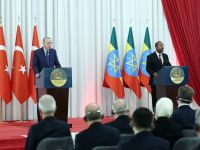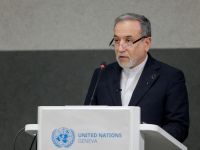Israeli Prime Minister-elect Ariel Sharon voiced optimism he will be able to forge a partnership with outgoing Prime Minister Ehud Barak's Labor party following discussions on the transition of power, said reports.
"I am sure there will be a national unity government," said Sharon, who must pull together a workable coalition by March 31st, the deadline for parliament to pass the 2001 state budget.
Representatives from Labor and Likud wrapped up a meeting Sunday and planned to resume negotiations on Monday.
Barak announced Tuesday he would be resigning from parliament, but has since been leading Labor's negotiations with Likud, while Sharon has offered him the job of defense minister, said Haaretz.
According to sources, Barak said that the security situation was on the brink of deterioration and many people, including Sharon, were pressuring him to remain in the defense ministry.
Regional minister, Shimon Peres, said Sunday that he was only interested in the position of foreign minister in Sharon's government.
Meanwhile, The Jerusalem Post newspaper reported that senior Likud members leveled harsh criticism at the negotiating team appointed by Sharon, warning of an "upcoming blow-up" among the Likud top brass, after it becomes known how few portfolios the prime minister-elect plans to hand out to Likud.
"Two of the three most important portfolios have been promised to Labor, which has also been promised the same number of portfolios as the Likud," a senior Likud source told Haaretz.
"United Torah Judaism, a party with five seats, has already gotten the Knesset Finance Committee chairmanship and a deputy minister, serving as minister. What will Shas get with their 17 mandates? Ultimately we will be left with nothing. If Sharon thinks this is going to pass quietly because of his 65 percent landslide, he's making a big mistake," the source said.
The national unity government is expected to comprise 24 ministers. A negotiating team member mentioned that Israel once had a national unity government with 26 ministers.
A year and a half ago, the Likud harshly criticized Barak for expanding his government from 18 to 24 ministers. Now, they are saying in the Likud, there is no escaping a government comprising at least 24 ministers, if not more, according to the Post.
The tension in the Likud has reached a high point because of the possibility that in a national unity government, the Likud will have only seven portfolios, added the paper
Many Labor members fear the party will become hostage to the right wing if it joins forces with Likud, said Haaretz, adding that they seek a unity government because they want to adopt a policy of moving towards peace with the Palestinians.
"We want to enter a unity government because it is truly the will of the people, but we do not want to do it at any price," said acting interior minister, Haim Ramon.
Sharon said he will not be bound by any earlier agreements with the Palestinians.
His stand angered many Arab leaders.
"He who wants to start from ground zero does not want peace," said Egyptian foreign minister, Amr Moussa.
"Progress was made on several points of the peace process during the negotiations which took place over the past few years. We have to preserve what we have already achieved," he added.
A final statement by Arab foreign ministers in Amman urged Sharon to respect the principle of land-for-peace, the basis of the peace process launched in Madrid in 1991.
Arafat, meanwhile, arrived in Egypt for talks with President Hosni Mubarak on the situation following Sharon's election, said AFP.
The talks, said reports, focused on the stumbling peace process and ways to resume talks with Sharon - Albawaba.com
© 2001 Al Bawaba (www.albawaba.com)







